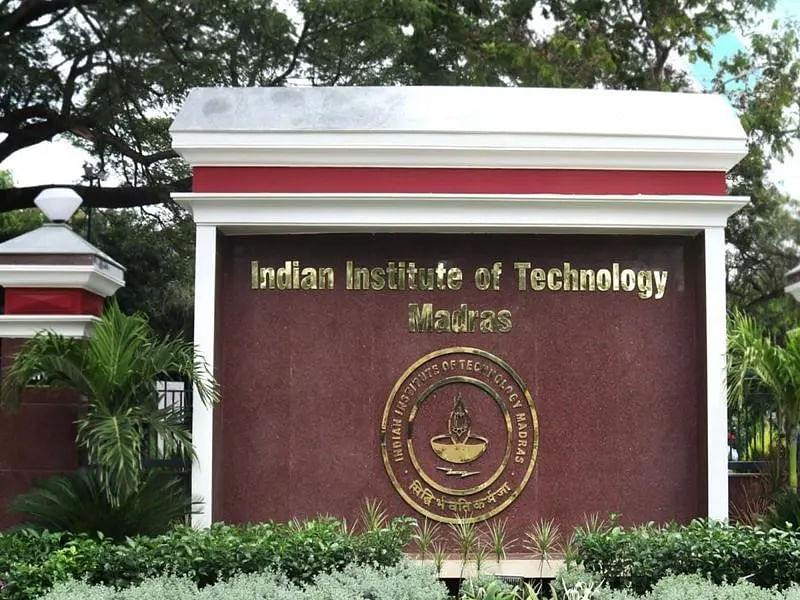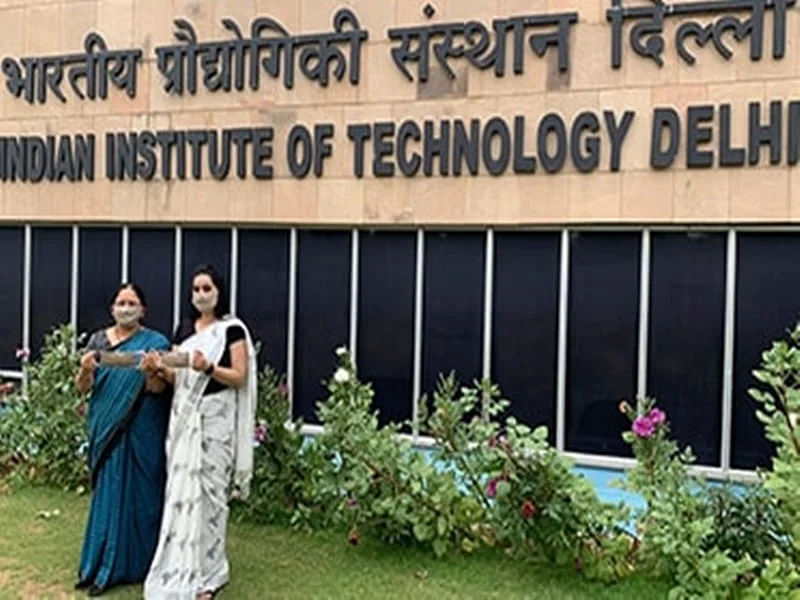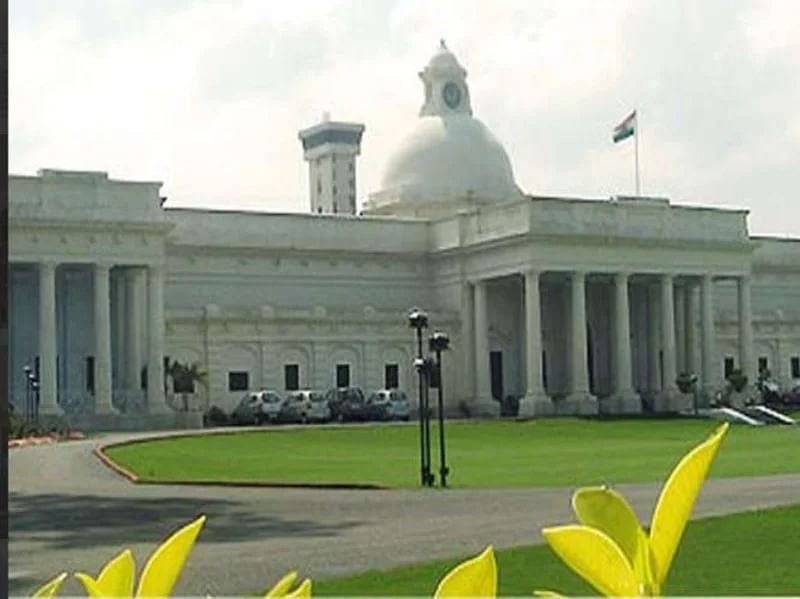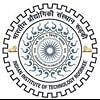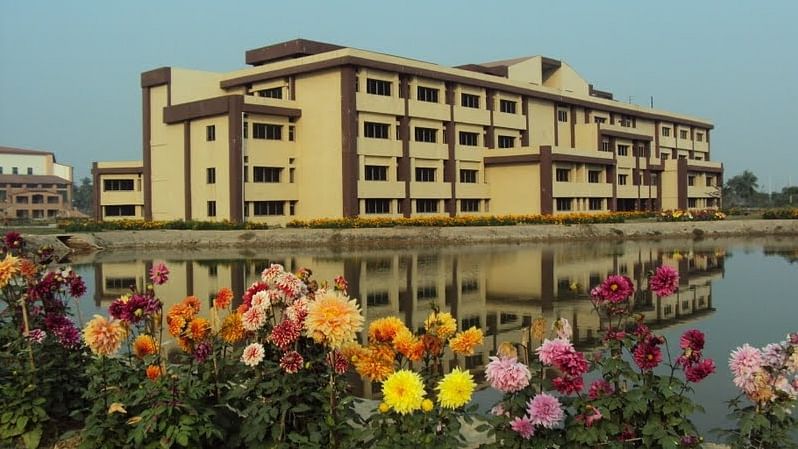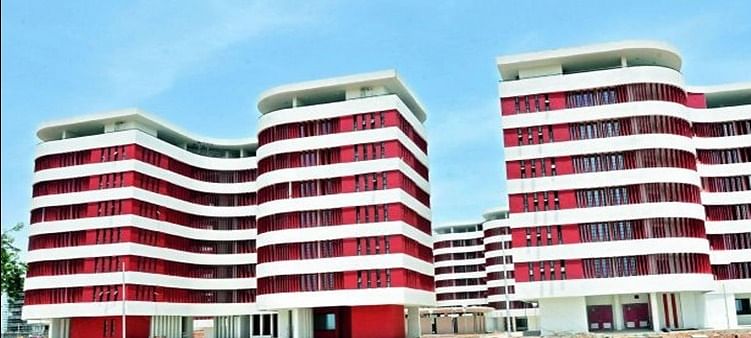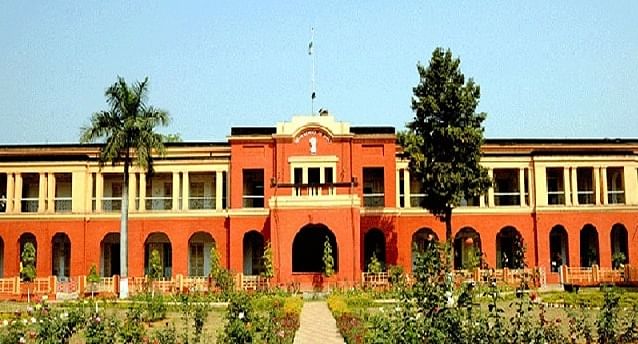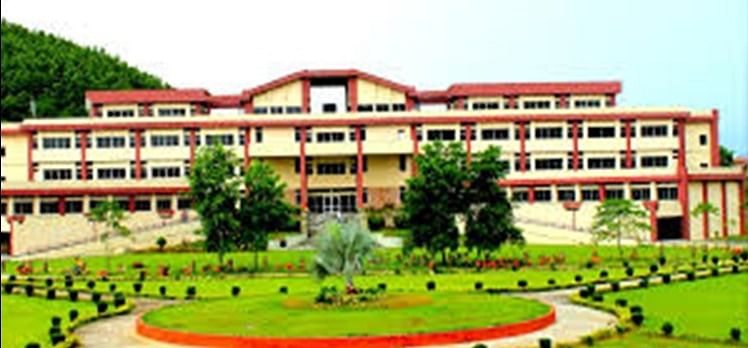B.Tech Engineering Physics: Course Details, Eligibility, Fees, Admission

B.Tech Engineering Physics is a 4-year undergraduate course that deals with electrical science, electronics, mechanics, computing, nuclear physics, and more. The course delves deep into engineering concepts and the topics falling under engineering physics After completing B.Tech Engineering Physics in India, graduates can choose to pursue higher education in India/abroad. Another option is to seek research and development jobs.
Table of Contents
- About B.Tech in Engineering Physics
- Eligibility Criteria for B.Tech Engineering Physics
- How To Get Admission for B.Tech Engineering Physics?
- Popular Entrance Exams for B.Tech Engineering Physics
- Top B.Tech Engineering Physics Colleges in India
- Fee Structure for B.Tech in Engineering Physics
- Syllabus and Subjects for B.Tech in Engineering Physics
- Why Choose B.Tech in Engineering Physics?
- Preparation Tips for B.Tech in Engineering Physics
- Scope of Higher Education for B.Tech Engineering Physics
- Salary of a B.Tech Engineering Physics Professional
- Career Options After B.Tech Engineering Physics
- Skills That Make You The Best Engineering Physics Professional
B.Tech Engineering Physics Course Details
| Degree | Bachelors |
| Full Form | Bachelor of Technology Engineering Physics |
| Duration | 4 Years |
| Age | No age limit |
| Minimum Percentage | 50% - 60% in 10+2 |
| Average Fees | ₹1.2 - 6.2 LPA |
| Average Salary | INR 3.2 - 6 LPA (Source: Payscale) |
| Employment Roles | Accelerator Operator, Applications Engineer, Optical Engineer, Design Engineer, Laser Engineer, Scientist, etc. |
About B.Tech in Engineering Physics
B.Tech Engineering Physics course helps the students to gain practical application of physics in multiple domains. B.Tech in Engineering Physics course prepares students to work on research projects and develop practical solutions to modern problems.
After a B.Tech in Engineering Physics, the aspirants open to a wide range of opportunities in varied industries. For instance, Microsoft, the Indian Space Research Organisation (ISRO), and Vikram Sarabhai Space Center (VSSR).
The list below is a set of tools and technologies used by engineering physics professionals:
- AutoCAD
- MATLAB
- COMSOL Multiphysics
- Power Supply WebDesigner
- Simulia
- TechCalc 100
Eligibility Criteria for B.Tech Engineering Physics
The aspirants must pass Class 12 with at least 50%. The minimum aggregate required in Physics, Chemistry, and Mathematics put together is over 60%, depending on the university. The aspirants must appear for a state-level or national-level entrance examination as specified by the university. The minimum age to apply for the course is 17 years
How To Get Admission for B.Tech Engineering Physics?
Admission to the B.Tech Engineering Physics course is mainly based on the Class 12 board exam scores; and entrance exam scores. The entrance exams one needs to appear in may differ as per the university/college one applies to. The same applies to cut-offs as well. Hence, aspiring students are advised to check eligibility criteria for admission before registering.
After the results are declared based on the cut-off scores, the aspirants may be called for an interview. Lastly, the seats are allotted, followed by fee payment. The course falls under the umbrella of B.Tech and therefore, follows a similar admission procedure. Here are some common steps students follow to secure an admission:
How to Apply?
Aspirants may complete the admissions either online or offline. Given the pandemic situation, most colleges and universities have an online admission process in place. To apply, fill in the required details such as contact number, course of interest, address, etc., and upload the documents, as mentioned on the college’s official website.
OR
In case of offline admission, visit the college, fill up an application form and submit the required documents.
Selection Process
The selection process is variable. Some colleges may ask the aspirants to attend an interview or a group discussion after the application is accepted.
Read More on B.Tech Admission
Check other important B.Tech Courses
Popular Entrance Exams for B.Tech Engineering Physics
Engineering is undoubtedly one of the most commonly sought courses in India after Class 12. The entrance exams for most B.Tech courses are the same. However, some institutes need the students to qualify for specific entrance exams. So, please make sure to check the details of the required entrance exams and respective cut-offs.
The selection procedure is based on the percentage secured in Class 12 and entrance exams. Admissions begin after the completion of the selection procedure. Some of the popular entrance exams for undergraduate engineering courses are:
A Quick Glance at the B.Tech Engineering Physics Entrance Exams
Most entrance exams mentioned above have variations in the eligibility criteria depending on the conducting body. Below point are some commonalities of these entrance exams:
- The mode of examination may be online/offline.
- The paper-pattern, examination mode, and syllabus vary with respect to the conducting bodies.
- The question-type is objective and tests knowledge of physics, chemistry, and maths.
- Entrance exams test the aspirant’s logical reasoning ability.
- Exam duration may last 2 - 3 hours.
Top B.Tech Engineering Physics Colleges in India
Below is the list of the best B.Tech Engineering Physics Colleges in the country, according to NIRF:
| Ranking | Top Colleges for B.Tech Engineering Physics |
| 1 | IIT Madras |
| 2 | IIT Delhi |
| 3 | IIT Bombay |
| 4 | IIT Roorkee |
| 5 | IIT Guwahati |
| 6 | IIT Hyderabad |
| 7 | IIT Dhanbad |
| 8 | NIT Calicut |
| 9 | IIT Mandi |
| 10 | Delhi Technological University |
Fee Structure for B.Tech in Engineering Physics
B.Tech Engineering Physics fees in India may range from INR 1.2 LPA to INR 6.2 LPA. The fees vary with the facilities provided by the college, the college’s reputation, etc. The payment can be made semester-wise or yearly as per the college’s rules.
| Colleges | Fees Structure |
| IIT, Delhi | INR 2.2 LPA |
| IIT, Bombay | INR 2.11 LPA |
| IIT, Roorkee | INR 2.21 LPA |
Syllabus and Subjects for B.Tech in Engineering Physics
B.Tech Engineering Physics course offers a combination of core engineering subjects and applied physics. This course involves laboratory subjects, projects, and workshops that give practical exposure to students. The topics covered are application-based and research-oriented. Some of the topics covered in B.Tech Engineering Physics are listed below:
- Quantum Mechanics
- Nuclear Science
- Photonics
- Electrical Engineering
- Statistics
- Electronics
- Laser Physics
- Computational Physics
Read More: B.Tech Engineering Physics Syllabus and Subjects
Why Choose B.Tech in Engineering Physics?
Those who have a keen interest in engineering and physics with an analytical bent of mind will find the B.Tech Engineering Physics course enormously enriching. The following three short questions can simplify the answer to the question above:
What is B.Tech Engineering Physics All About?
B.Tech Engineering Physics course structured into four years helps students enhance their technical and problem-solving skills. It covers a wide range of topics that fall under the umbrella of physics, such as quantum mechanics, electricals and electronics, solid-state physics, and so and so forth. Apart from the core engineering physics subjects, English communication and life skills are also given importance. In short, B.Tech in Engineering Physics prepares students to resolve technical issues in multiple engineering/science domains.
What Does an Engineering Physics Professional Do?
B.Tech in Engineering Physics opens up a plethora of opportunities for students, ranging from research and development to entrepreneurship in various industries. Engineering physics professionals perform the following functions:
Research: Engineering physics professionals design and carry out experiments to investigate the root causes of a technological problem.
Develop Products/Solutions: The outcome of their constant research is most likely the best possible solution or product that enhances the overall output.
Co-ordinate: Engineering Physics graduates work with professionals at various levels, such as, laboratory professionals and project managers.
Design Equipment: As both an engineer and physicist, they design equipment to get specific measurements and operate/manage high-end machinery.
Develop Standard Operating Procedures (SOPs): Part of their job is to evaluate the existing processes and enhance the operating procedures for optimal performance.
Reasons Why Engineering Physics Can Fetch You a Rewarding Career?
Salary: According to Payscale, an Engineering Physics professional's average salary may range from INR 3.2 - 6.0 LPA. This wide range is due to various factors such as project, work experience, specialization, industry, and designation. Soft skills also add up to the chances of an aspiring engineer to land high-paying jobs.
Job Growth: With an increase in work experience, engineering professionals are likely to reach senior positions like project managers, technical directors, and scientific officers and demand a higher annual salary package. These roles could be in varied industries such as electricals, electronics, nuclear physics, quantum physics, etc.
Demand for Engineering Physics Professionals: Companies need people who have research and development skills. B.Tech in Engineering Physics addresses this need by training students in applied physics to resolve technical issues in multiple domains.
Read More: B.Tech Engineering Physics Jobs and Scope
Preparation Tips for B.Tech in Engineering Physics
Students should plan their course of study well in advance to give time for revisions and resolving queries. Topics such as those related to engineering and physics need significantly more time for assimilation. Below are some preparation tips for B.Tech Engineering Physics students:
Brush-up the Basics: The basics of Physics, Chemistry, and Mathematics form the foundation for all engineering core subjects.
Prepare a Study Schedule: Get familiar with the course syllabus to make a study plan to cover all subjects to allow more time for problem-solving and avoid stress.
Participate in Innovation Contests: Participating in contests tests a subject's grasp and enhances the ability to apply what one has studied.
Network: Networking with alumni, interdepartmental students, and industry professionals through contests, workshops, seminars, and projects can enhance your knowledge and likelihood of landing a job.
Stay Up-to-date: Stay abreast of the latest engineering, physics, and other related sub-domains to develop application-based thinking.
Scope of Higher Education for B.Tech Engineering Physics
B.Tech Engineering Physics is perfect for those who want to pursue higher studies. M.Tech in Engineering Physics is one option to go for after graduation. The other opportunities include:
- M.Sc Physics
- Ph.D.Physics
- MBA
- M.Tech Engineering Physics
- M.E Physics
Salary of a B.Tech Engineering Physics Professional
According to Payscale, the average starting salary for B.Tech Engineering Physics graduates In India ranges from INR 3.2 - 6 LPA. The annual salary varies depending on work experience, designation, industry, etc.
For instance, a research scientist can grow to become a senior research scientist and earn around INR 8.1 LPA in India.
Read More: B.Tech Engineering Physics Salary
Career Options After B.Tech Engineering Physics
Job opportunities for B.Tech Engineering Physics graduates vary from one domain to another. Following are some of the industrial sector that Engineering Physics aspirants can aim for employment:
- Nuclear Industry
- Energy Industry
- Medical Industry
- Nanotechnology Industry
- Optical Engineering
- Material Science Industry
- Electrical Engineering Industry
- Acoustics Industry
B.Tech Engineering Physics students can seek employment in the following companies/organizations:
- Defense Research and Development Organisation (DRDO)
- Intel
- IBM
- Bharat Electronics Limited (BEL)
- Hewlett Packard
- Indian Space Research Organisation (ISRO)
Skills That Make You The Best Engineering Physics Professional
Engineering physics professionals work in multiple areas and with people at different designations. The list below is a set of skills that most likely makes the best engineering professional:
- Critical Thinking Skill
- Comprehension Skill
- Learning Ability
- Programming Skill
- Adaptability
- Analytical Skill
- Presentation Skill
- Written and Verbal Communication Skill
Top B.Tech Engineering Physics Colleges
Top Engineering Entrance Exams
B.Tech Engineering Physics Fee Structure
FAQs on B.Tech Engineering Physics
Q: Is Engineering Physics is a good major?
Q: What is the salary of Engineering Physics graduates?
Q: What after B.Tech Engineering Physics?
Q: Is there any relation between the Engineering Physics and B.Sc Physics course?
Q: Are there any Private Universities offering this course?
